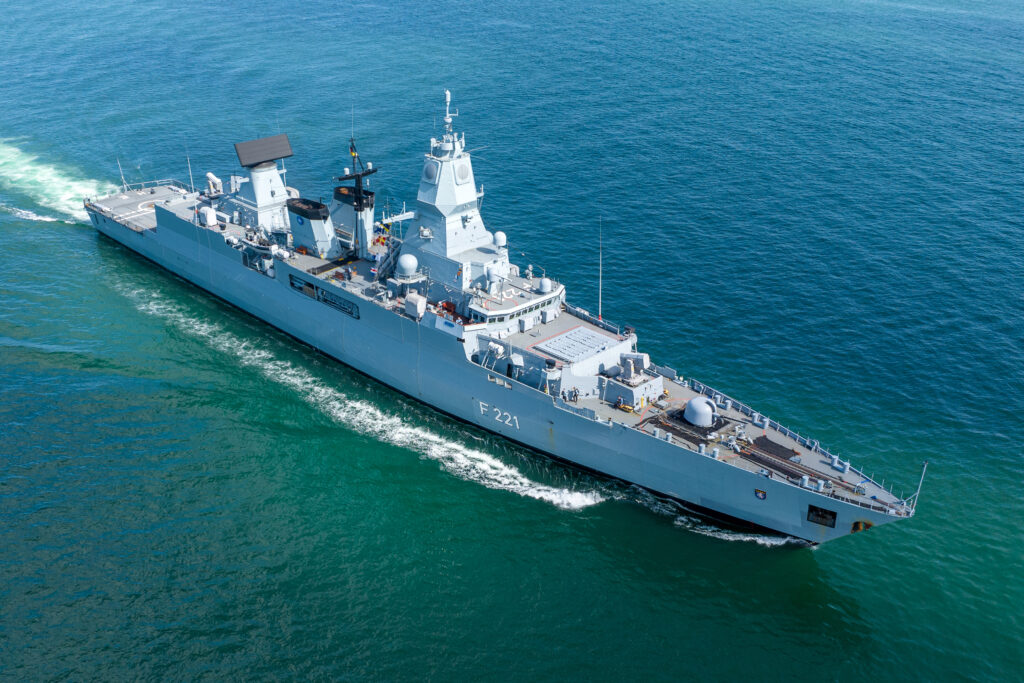Operation ‘Aspides’, the EU naval mission in the Red Sea, has cleared a major hurdle in Brussels. Although it was only at an informal meeting of EU defence ministers without a decision-making character, it was enough to set the course for the future.
“Our aim is to set up and launch Operation ‘Aspides’ by 19 February at the latest. And I am sure that we will do so,” said Josep Borrell, the EU’s high representative for foreign affairs and security policy, at the end of the informal EU Defence Council on 31 January 2024.
According to Borrell, the member states are strongly in favour of the EU mission to protect merchant shipping in the Red Sea from attacks by the Yemen-based Houthi militia. Seven EU countries said they were prepared to provide ships or aircraft for the mission, while Belgium has already agreed to send the frigate Louise Marie (F-931). According to information from marineschepen.nl, the Dutch frigate HNLMS Tromp could at least be associated with the EU mission on its world tour. The frigate HS Hydra from Greece is to join the European organisation in the Red Sea. Rome has promised the participation of a unit for the duration of the mission.
Germany has earmarked the frigate FGS Hessen for the start of the mission. According to our information, the parliamentary discussion of this could take place in the week of 19-23 February. We understand that Hessen will leave on 8 February, although the ship’s transit to the theatre of operations is dependent on the granting of the parliamentary mandate.
Meanwhile, the Danish frigate HDMS Iver Huitfeldt left its home base on 29 January to take part in the US-led Operation ‘Prosperity Guardian’ from mid-February.
While the deployment of forces appears to be well underway, the question of the operational headquarters (OHQ) has reportedly not yet been finalised. Greece has thrown its Joint Force Command South Centre based in Larissa into the ring. Alongside five other national EU command centres in Germany (Ulm), France (Paris), Italy (Rome), Spain (Rota) and – occasionally – in Poland (Krakow), it is available for the planning, command and control of EU operations at a military-strategic level outside Brussels. According to Nicolas Gros-Verheyde from the security policy blog B2, the Greek offer is said to have fallen on fertile ground. Greek leadership for the mission with a French deputy could emerge, which would then leave a decision to be made about the leadership at sea. The tried and tested pattern is a force command on board a ship that rotates between the participating nations.
With this constellation, there is no risk of the Houthis turning against European partners among the Arab nations, which would possibly be the case with a headquarters in Abu Dhabi or Djibouti.

There is agreement on the purely defensive nature of Operation ‘Aspides’, with Borrell stating, “Under no circumstances will we start combat operations against Yemeni soil.”
This could make it possible to realise the mission’s ambitious timetable.
However, it has to be said that the Europeans have been taking a long time to come to a decision, let alone take action. The Houthis began their attacks on civilian shipping in the Bab-el-Mandeb on 19 November 2023 with the hijacking of the roll-on/roll-off vehicle carrier Galaxy Leader. On 18 December Washington announced its Operation ‘Prosperity Guardian’, in which it is taking action against attacks in a coalition with friendly nations. European nations are taking part in this; France, Italy and the United Kingdom are represented, albeit under different leadership constructs.
At least with ‘Aspides’, the EU is seizing an opportunity to act as a security architect, having built up expertise and infrastructure in the region from its ‘Atalanta’ and ‘Agenor’ missions. There are also other EU relationships in the Arab region via the Union’s member states that could be built upon.
However, Brussels would have to move towards a holistic approach, which remains a pious hope given the current state of the EU. For the time being, the economic giant that is the EU remains a lightweight in terms of security policy, to the detriment of its members.
European shipowners dominate the global market; four of the 10 largest container shipping companies are European, operating 2,360 ships (out of 3,632). They are directly affected by the attacks in the Red Sea and the consequent lengthening of transport routes to avoid the region.
The final decision on Operation ‘Aspides’ could be taken at the EU Foreign Affairs Council, the formal meeting of foreign ministers, on 19 February.





![2025 in the Western Balkans: A year-end SITREP Soldiers from the Czech company, part of the EUFOR Multinational Battalion, conducted a series of joint training exercises in Mostar alongside operators from Bosnia’s State Investigation and Protection Agency (SIPA). [EUFOR BiH]](https://euro-sd.com/wp-content/uploads/2025/11/Handshake_EUFOR-BiH-218x150.jpg)







